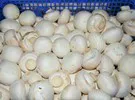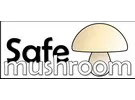 Australia has never suffered a mushroom food safety outbreak, and a new project aims to make sure this track record remains. Australian mushroom farmers will soon have access to a food safety program designed for their unique needs.
Australia has never suffered a mushroom food safety outbreak, and a new project aims to make sure this track record remains. Australian mushroom farmers will soon have access to a food safety program designed for their unique needs.
The ‘Safe Mushroom’ project is a Hort Innovation Mushroom Fund strategic levy investment through the ‘Mushroom food safety extension and adoption program’ (MU20000) and is led by the Australian Mushroom Growers Association (AMGA). Together with Applied Horticultural Research (AHR) and Mallsgate consultancy, the project team has developed a voluntary food safety code of practice targeted specifically at mushroom farms.
“Currently, obtaining certification is costly, as the record keeping required can be virtually a full-time job. This can make existing certification programs difficult for smaller, family-based farms,” said food safety researcher Dr Jenny Ekman from AHR.
“To the consumer, mushrooms are mushrooms. They don’t differentiate one farm from another. If a food safety outbreak was to occur, it would affect the whole industry, not just the individual grower,” Dr Ekman said.
“Our aim was to facilitate a process by which small farms could demonstrate that they are following safe practices, without the time and cost of higher-level programs.”
The Safe Mushroom documentation is three pages and only includes criteria that directly relates to mushroom growers. “We recognise that growers are time poor, so have kept the Safe Mushroom training program as simple as possible,” said Leah Bramich, General Manager of the AMGA.
“The voluntary program is available free of charge for all Australian growers of Agaricus bisporus, not just AMGA members,” Ms Bramich said.
“Through this more simplified program, growers will receive access to free training and resources, enabling them to demonstrate they have considered potential sources of contamination, implemented strategies to reduce risk, and kept records where appropriate.”
The resources include examples of the information required by farms, such as production facility maps, a typical operations flow chart for mushroom production, work instructions, and risk assessments for growing media and casing.
There are also record sheets for activities such as chemical application and staff training, scheduling cleaning and pest management.
“Although the Safe Mushroom program alone does not meet the current supply requirements of the major retailers, it will provide a food safety foundation and evidence that a farm is following safe practices.”
An additional service provided to Agaricus bisporus growers through this project is free microbial testing of mushrooms and irrigation water. These test results do meet recognised food safety certification requirements (e.g. Freshcare), not just those of Safe Mushroom.
Any Agaricus bisporus growers or farm operators in Australia interested in taking part in the voluntary, free-of-charge Safe Mushroom food safety program, or accessing a free suite of microbial testing for their farm, are encouraged to contact Dr Jenny Ekman at Applied Horticultural Research directly.
 For more information:
For more information:
Dr Jenny Ekman
Applied Horticultural Research
Tel: +61 0407 384 285
Email: jenny.ekman@ahr.com.au
www.ahr.com.au
